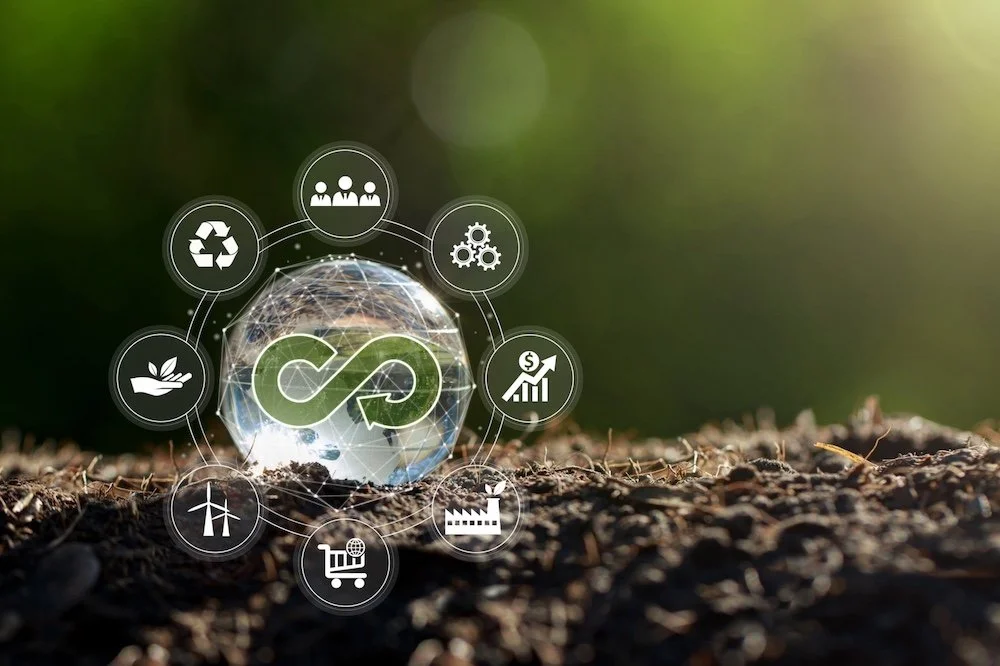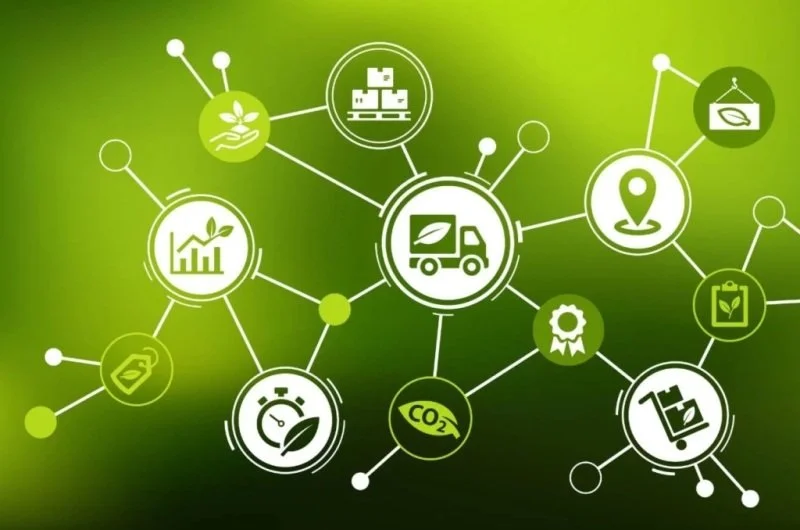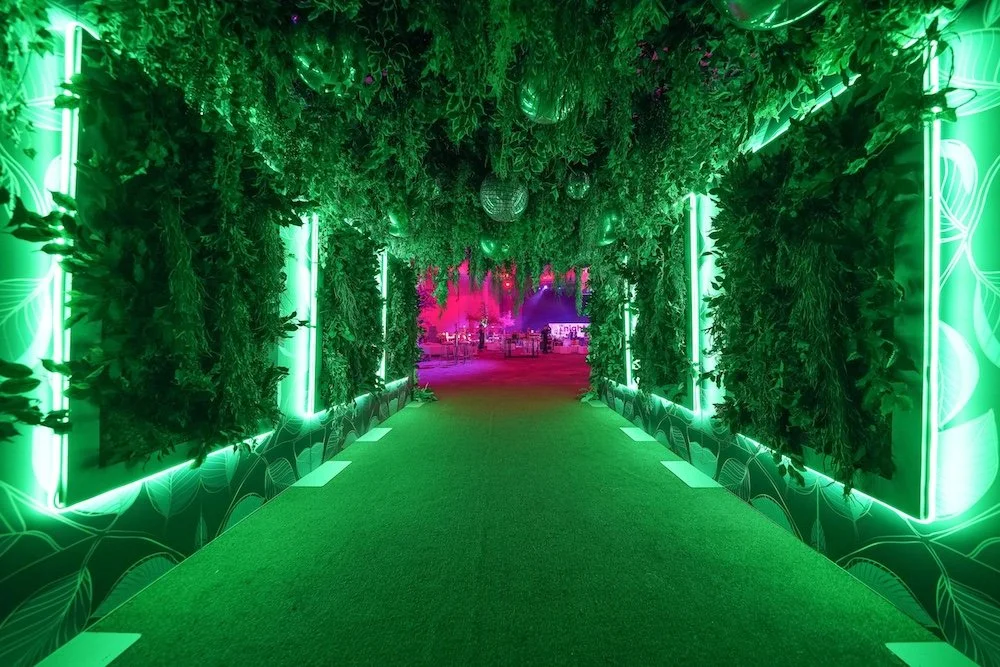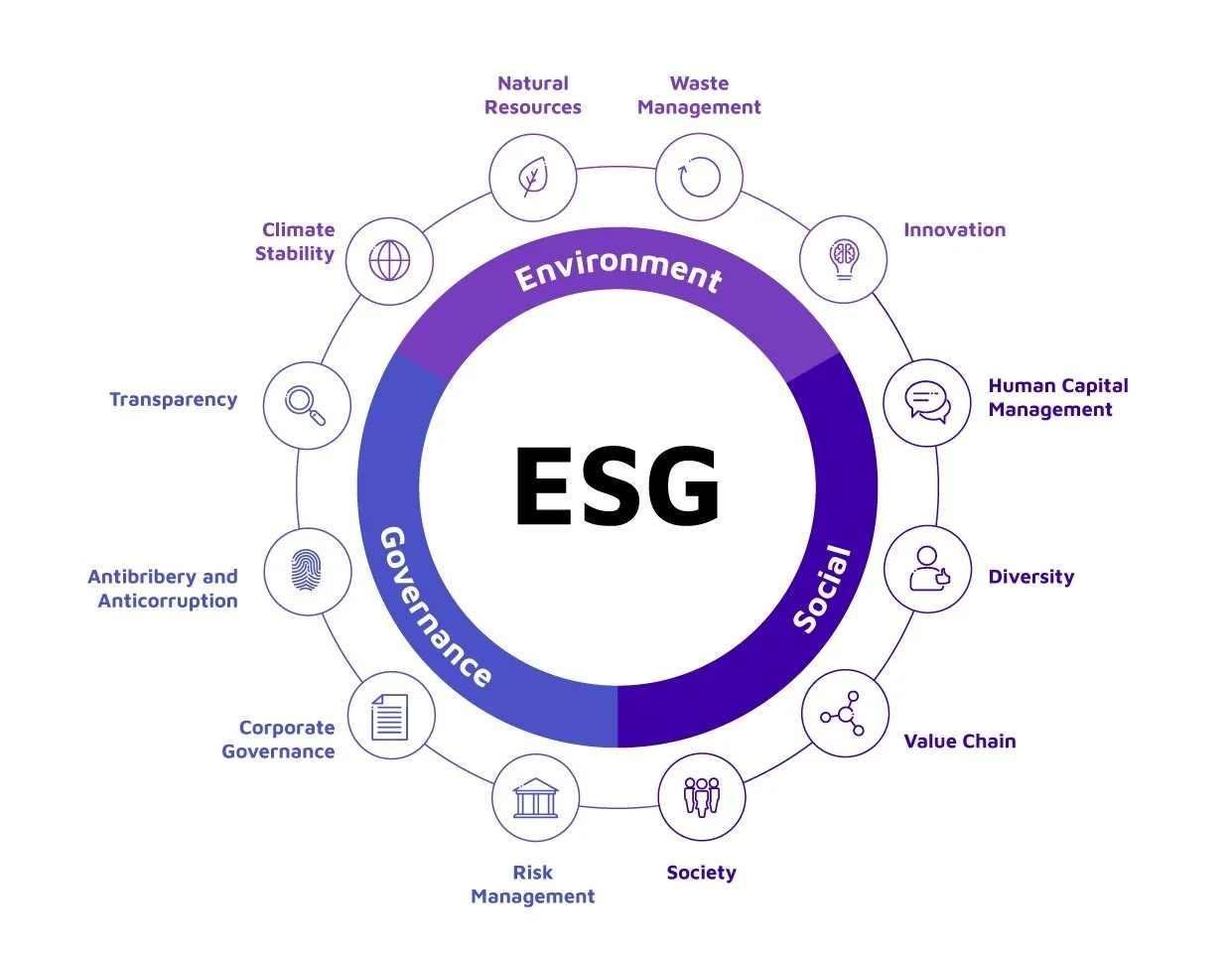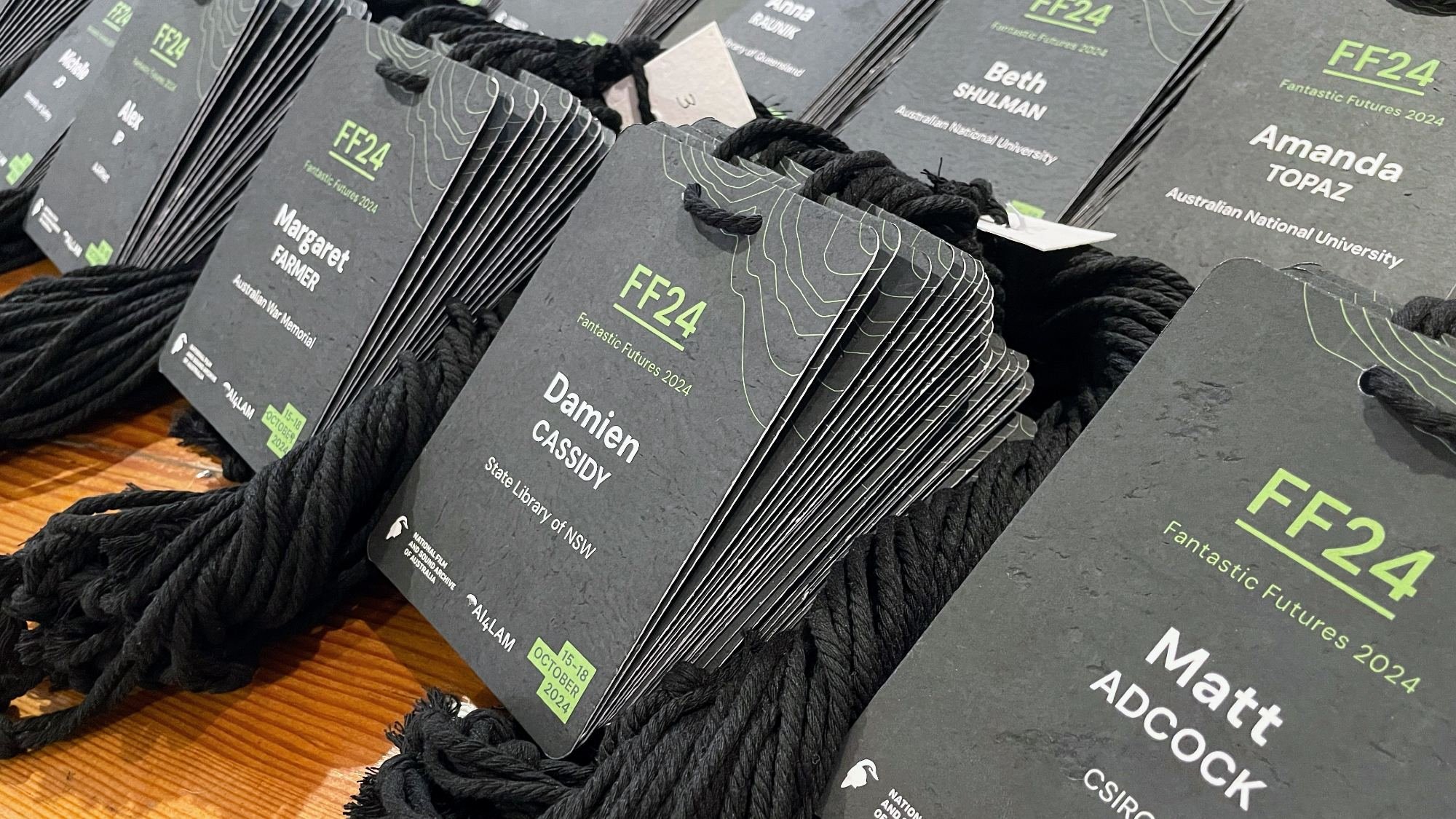Top 5 Eco-Friendly Event Trends for 2025 (and What’s Next)
Updated 7 July 2025
As an event professional in Australia, you're expected to do it all: create unforgettable experiences, manage tight budgets, and now, lead the charge on sustainability. The pressure is immense, and the fear of "greenwashing"—or simply getting it wrong—is real.
But what if sustainability wasn't just another box to tick? What if it was the very framework that could make your events more efficient, more engaging, and more impactful?
The conversation around eco-friendly events is maturing. It's no longer just about offering a vegetarian meal option; it's about re-thinking the entire event lifecycle. Based on our latest industry research, we’ve distilled the noise into five core shifts that define the future of sustainable gatherings for 2025 and beyond. This is your practical playbook to navigate what's next.
Shift 1: The Rise of the Circular Event
The most significant evolution in green event management is the move from a "zero-waste" mindset to a "circular event" framework.
The old goal was to minimise what you sent to landfill. The new standard is to design an event where waste is eliminated from the very beginning. This means scrutinising the entire lifecycle of every physical item, from signage and decor to the name badges attendees wear, and choosing options that can be reused, repurposed, or returned to the earth.
Why it Matters:
The statistics are sobering. A typical conference attendee can produce 1.89 kg of waste per day. For a 500-person, three-day event, that’s nearly three tonnes of waste. The circular approach tackles this head-on by designing out waste entirely.
How it Works in Practice
Rethinking Signage and Decor:
Instead of printing date-specific foam-core signs, circular-minded planners use modular, reusable signage made from bamboo or reclaimed wood. Decor is rented or sourced from materials that can be composted or repurposed.
Ditching Single-Use Swag:
The era of cheap, disposable swag is over. The focus is now on high-quality, useful items (like branded reusable water bottles) or digital giveaways.
Choosing Regenerative Materials:
This is where the true innovation lies. Materials are chosen not just for being "recyclable," but for having a positive end-of-life.
Terra Tag in Action:
This is our entire philosophy. A traditional plastic name badge is a linear product—made, used, thrown away. Our plantable seed paper name badges are a perfect example of a circular product. After the event, they don't go to landfill; they are planted and grow into native flowers or herbs, actively regenerating the environment. They solve the problem of event waste and create a memorable, positive experience for the attendee. Looks premium, feels effortless—and aligns with your sustainability goals.
Shift 2: Hyper-Local Sourcing & Meaningful Community Exchange
Amidst economic pressures, the trend isn't to spend more on sustainability, but to spend smarter. A hyper-local strategy achieves this by creating environmental and social benefits while often being cost-neutral.
This shift moves beyond just choosing a venue with a good Green Star rating. It involves creating a deeply integrated local supply chain that supports the host community's economy and leaves a positive social legacy.
How it Works in Practice
Local Supply Chain First:
Planners now prioritise venues that are easily accessible via public transport and have established local sourcing policies for their catering. It’s about asking caterers, "What percentage of your ingredients are sourced from within 100km?" This reduces food miles and invests money directly back into the community.
Integrating Social Enterprises:
Instead of a separate line item for a charitable donation (which can be the first to go in a budget cut), planners integrate social good into their operational spending. This means hiring a social enterprise for a service you already need, like a coffee cart that trains at-risk youth or a catering company that employs refugees. The cost is the same, but the social impact is profound.
Facilitating Knowledge Exchange:
Rather than complex and costly off-site volunteer days, events can create high-value, low-cost community connections. This could be as simple as offering complimentary tickets to local university students or arranging an hour of "office hours" where visiting industry leaders mentor local small business owners.
This approach transforms your event from a temporary visitor into a genuine community partner, creating a powerful story that resonates deeply with attendees and stakeholders.
Shift 3: The Digitally Mindful Event
Technology is a powerful enabler of sustainability, but this trend has two sides. While we leverage tech to reduce our physical footprint, we must also become mindful of our digital footprint.
How it Works in Practice
Leveraging AI for Efficiency:
As explored in our AI in Event Planning guide, artificial intelligence is now a key sustainability tool. AI-driven analytics can predict attendance with far greater accuracy, helping to eliminate food and material over-ordering—one of the biggest sources of event waste.
Embracing Hybrid with Intention:
Hybrid events remain a cornerstone of sustainability by drastically cutting travel emissions—often the largest part of an event’s carbon footprint. A 2021 study in Nature Communications found that a virtual format can cut an event's footprint by up to 94%.
Addressing the Digital Carbon Footprint:
The new layer of awareness for 2025 is the environmental cost of the technology itself. Non-stop video streaming, massive data storage, and inefficient event apps all consume significant energy. "Digitally mindful" planners now ask questions like:
Does our event platform run on servers powered by renewable energy?
Can we offer attendees an "audio-only" option for some sessions to reduce bandwidth?
Are we archiving video content efficiently to minimise long-term data storage?
This demonstrates a sophisticated, holistic understanding of sustainability that sets your event apart as a true leader.
Shift 4: The Attendee-Centric Green Experience
The most successful sustainable events don't just happen in the background. They actively and transparently involve attendees, reframing sustainability not as a sacrifice, but as a direct enhancement of their experience.
This shift is about moving from "eco-friendly" to "eco-logical," where the green choice is also the most enjoyable and wellness-focused choice.
How it Works in Practice
Biophilic Design:
Top venues are integrating nature directly into their meeting spaces. Abundant natural light, living green walls, and indoor plants are no longer just aesthetic choices; they are proven to improve attendee mood, focus, and creativity.
Connecting Sustainability and Wellness:
The programming itself can reflect this. Think networking walks in a local park instead of a stuffy reception hall, or offering mindfulness sessions that connect personal well-being with planetary well-being.
Gamification and Positive Reinforcement:
Instead of lecturing attendees, leading events turn sustainability into a fun, engaging game. An event app might have a leaderboard that awards points for refilling a water bottle, using public transport, or correctly sorting waste at a composting station. This turns compliance into a fun, collective activity.
When attendees see and feel the benefits of your green choices, they transform from passive observers into active, enthusiastic participants.
Shift 5: Integrated ESG & Transparent Reporting
While "ESG" as a buzzword might be facing fatigue, the underlying principle that businesses must be accountable for their environmental, social, and governance performance is stronger than ever. For events, this means moving from making green claims to proving them with data.
How it Works in Practice
Carbon Offsetting with Credibility:
It is now standard practice for leading events to calculate their unavoidable carbon emissions and invest in high-quality, verified carbon offsets to achieve carbon neutrality. The key in 2025 is transparency: choosing certified Australian projects (like Greenfleet's native forest restoration) and clearly communicating to attendees which project they are supporting.
The Post-Event Impact Report:
The follow-up email is no longer just a "thank you." It's an opportunity to close the loop with an Impact Report. This is a simple, visual summary of the event's sustainable achievements:
"Together, we diverted 85% of waste from landfill."
"Our local sourcing policy directed $25,000 to businesses in the host community."
"Thanks to you, we saved 5,000 plastic bottles from being used."
This data-driven transparency builds immense trust, delights sponsors with measurable ESG outcomes, and makes every attendee proud to have been a part of your event. It's the ultimate answer to any "greenwashing" skepticism.
The Future is Sustainable, Not Stressful
These five core shifts demonstrate that a truly eco-friendly event is no longer about compromise; it's about strategic advantage. By embracing the circular event, building a hyper-local supply chain, being digitally mindful, focusing on the attendee experience, and reporting transparently, you're not just reducing your environmental impact. You're creating more memorable, efficient, and resilient events that resonate deeply with modern audiences.
The message for 2025 and beyond is clear: sustainability isn’t another task on your checklist. It's the framework for building better events.
Ready to make these trends a reality? Terra Tag is here to help you take the first, easiest step. Our plantable seed paper and recycled paper badges are the perfect embodiment of the circular event trend. They look premium, feel effortless, and show your commitment to sustainability in a way attendees can literally hold.
Explore our sustainable event solutions today. All our badges are delivered ready to wear—so you can skip the badge assembly drama and focus on creating an event that matters.
Frequently Asked Questions about Eco-Friendly Event Trends
1. Is implementing these sustainable trends going to be more expensive?
Not necessarily. While some sustainable choices can have a higher upfront cost, many trends focus on efficiency that leads to savings. For example, using AI to accurately predict attendance reduces food and material waste, cutting direct costs. Sourcing locally can reduce transport fees, and ditching single-use items eliminates repeat purchases. The key is to shift from thinking about cost to thinking about investment and value.
2. I'm a busy event planner. What's the one trend I can focus on for the biggest impact?
Focus on the Circular Event model by tackling your highest volume waste items first. For most events, this includes food, signage, and name badges. Switching from disposable to reusable or regenerative options (like compostable serveware or plantable name badges) provides a visible, high-impact change that significantly reduces your landfill contribution.
3. How can I get my stakeholders or clients on board with a greener approach?
Frame it around benefits they care about: risk, reputation, and ROI. Use data to show how sustainability reduces waste and can lower costs. Highlight the reputational advantage, as modern audiences and sponsors are actively drawn to businesses with strong ESG credentials. Present it not as an "eco-add-on" but as a strategic decision to create more modern and successful events.
4. What does a "digitally mindful" event actually mean in practice?
It means being conscious of the environmental footprint of your technology. Practical steps include choosing an event platform that uses green-powered servers, optimizing video streams to reduce data consumption, and archiving event content in a way that minimizes long-term energy use for data storage. It's about using tech smartly while being aware of its hidden impacts.
5. Are these trends only for big corporate conferences?
Absolutely not. These principles are scalable to any event, from a small workshop to a large festival. A local community event can practice hyper-local sourcing by using a neighbourhood caterer. A workshop can be digitally mindful by ensuring its presentation files are compressed. The core ideas of reducing waste, supporting community, and enhancing attendee experience are universal.

